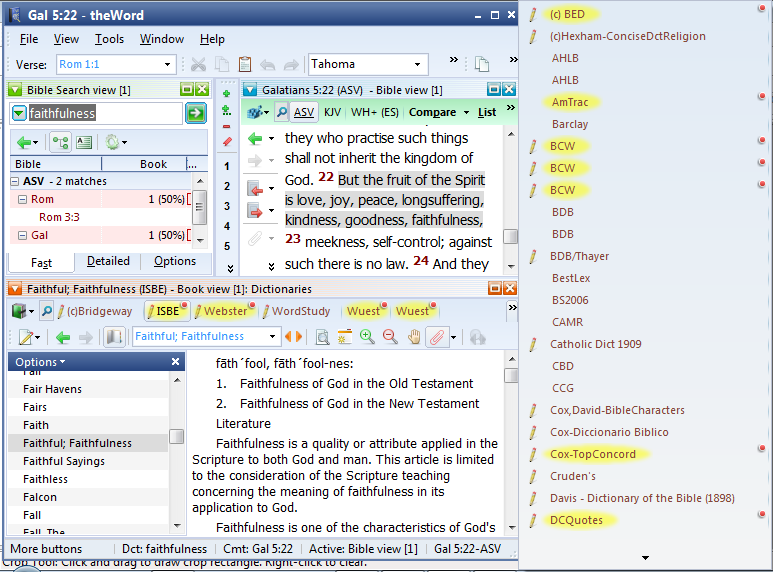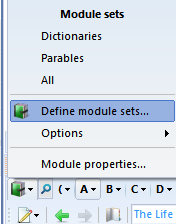Class Description: theWord Dictionaries. This post will go through how to make a Module set to see all your installed dictionaries.
Prerequisite: Read and study How to Make a Model Sets.
Resource: Where do I download free theWord Dictionaries?
- Main Dictionary Module index.
- Hebrew Lexicons, Grammars, and other Heb. Reference Works.
- Another Link for Hebrew Lexicons.
- Greek Lexicons, Grammars, and other Greek Reference Works.
- Another Link for Greek Lexicons.
- Straight English Bible Dictionaries (little or no Greek-Hebrew).
- Chain Reference Bible Dictionaries.
- English Bible Concordance Type Dictionaries.
- English Language Dictionaries.
- Sermon Illustration Dictionaries.
These are free download sites (as far as I know from my last visit to them) for these works.
 .
.
Please help us keep this website up. We work hard to be a blessing to you. Donate to us. Even a $5 or $10 donation is greatly appreciated. All donations will go to pay hosting and domain fees.
You can use your PayPal account if you have one, or you can donate using any normal debit or credit card, pay through PayPal and chose just Debit or Credit Card.
One of the advantages of TheWord is the ability to make subsets of all your modules. In this class we will make a dictionary Module set. What the purpose and advantage of this is in using and searching your modules, you can reduce what TW has to go through (filtering results and cutting down on search times) by just including dictionaries.
I would think that the more dictionaries that are out there, the more the serious Bible student would want most all of them, and then arrange and use them wisely.
For example, you should have an English Dictonaries Module Set with all English Dictionaries in it. Other dictionary model sets, only English Reference dictionaries (like Websters or Meridth’s Dictionary of the English Language), a Greek Lexicon, and another Hebrew Lexicon model sets.
At this point you might need to review or read and study for the first time, the basic Model Sets class How to Make a Model Sets.
In theWord, open Define Module Sets Icon, then click on Make Module Sets,
and do the following…
1.) Clear Tree
2.) Templates…
3.) Group by Type.
This will give you a module set with ALL your modules but by type.
4.) Click on Commentaries, Books, and Maps in the tree in the center window, and click “Delete” (button on the right hand column).
You should have only “Dictionaries” folder remaining, with a bunch of dictionaries under that. Select the first dictionary in the list, hold down shift, and click on the slider bar on the right, until you see the last dictionary, click on that, and then drag it above to get it out of the dictionary folder.
5.) Delete the empty dictionary folder.
6.) Selective delete what dictionaries you don’t want. Here, do the steps, and make an English Bible Dictionary, and delete the Greek, Hebrew, and any other stuff you don’t want in that module set. Do the whole process again and leave only Greek, then again and only Hebrew. You can also add any modules from the left hand column that you might want to incude that are not in the dictionary format.
7.) Save your module set. TW will not remember this set of modules without saving it, so click on the check box “Save this Set” and enter the name below it (last entries in the right hand colum).
Once you are out of the Define Module Set dialog box, you click on the Green books icon again to select again whatever module sets you have made.

